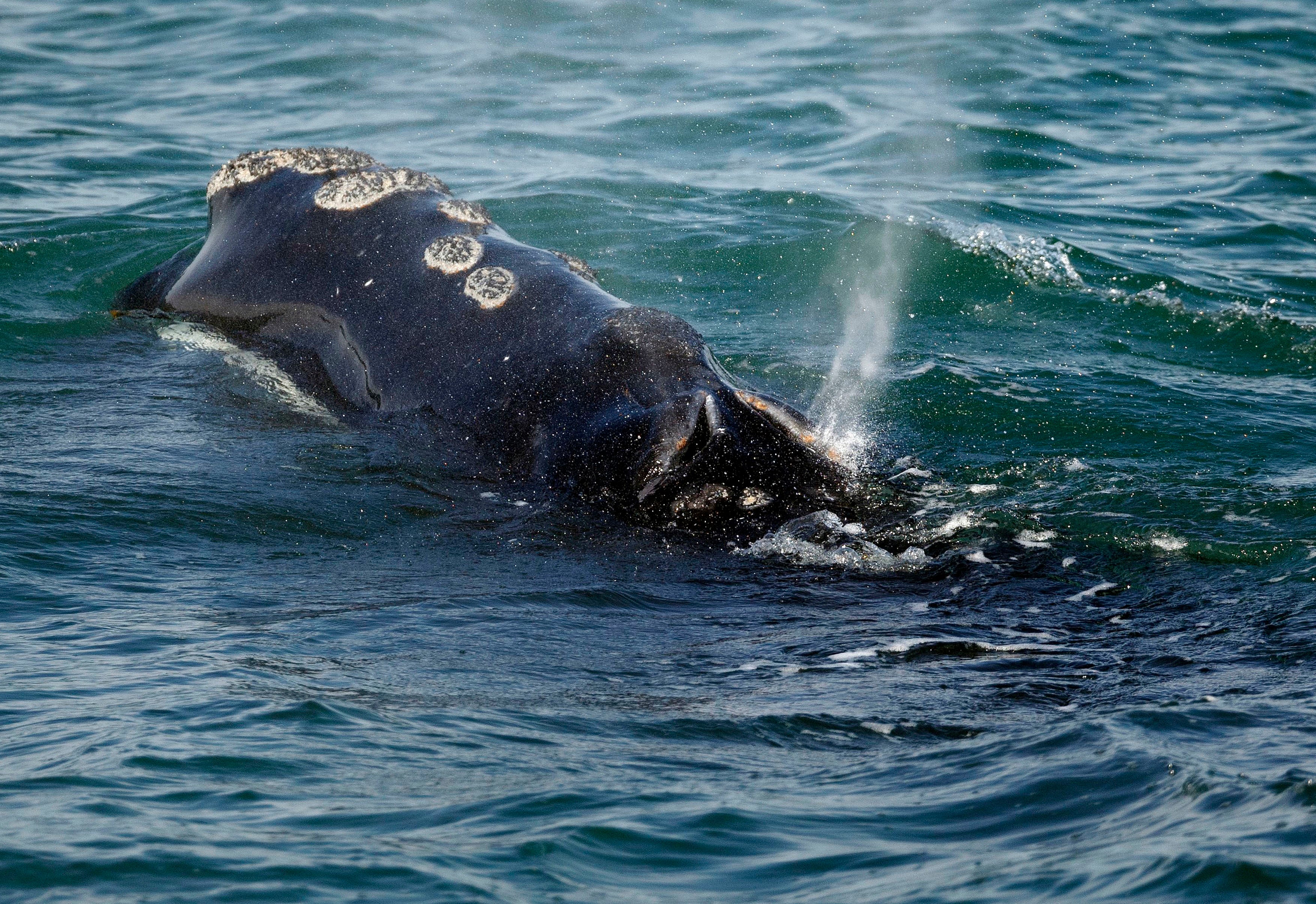Georgia congressman wants to block US agency from slowing boats to protect endangered whales
A Georgia congressman wants lawmakers to block a federal agency from imposing new speed restrictions on boats and ships to protect a critically endangered whale species

Your support helps us to tell the story
From reproductive rights to climate change to Big Tech, The Independent is on the ground when the story is developing. Whether it's investigating the financials of Elon Musk's pro-Trump PAC or producing our latest documentary, 'The A Word', which shines a light on the American women fighting for reproductive rights, we know how important it is to parse out the facts from the messaging.
At such a critical moment in US history, we need reporters on the ground. Your donation allows us to keep sending journalists to speak to both sides of the story.
The Independent is trusted by Americans across the entire political spectrum. And unlike many other quality news outlets, we choose not to lock Americans out of our reporting and analysis with paywalls. We believe quality journalism should be available to everyone, paid for by those who can afford it.
Your support makes all the difference.A Georgia congressman moved Friday to stop a federal agency from imposing new speed restrictions on boats and ships in order to protect critically endangered whales.
The National Oceanic and Atmospheric Administration proposed a year ago to broaden the geographical area of its seasonal speed restrictions along the U.S. East Coast and expand the types of vessels required to slow down. The rule change is intended to protect North Atlantic right whales, a species that scientists say is perilously near extinction with a dwindling population of less than 340.
U.S. Rep. Buddy Carter, a Republican whose district includes Georgia's 100-mile (160-kilometer) coast, introduced a bill Friday that would prohibit NOAA from spending federal dollars to implement the rule change until its parent agency, the Department of Commerce, develops and deploys new technology to monitor Atlantic waters for right whales.
Carter said the enhanced slowdown rules would be restrictive enough to cause charter fishing boats to quit the business and to disrupt the efficiency of busy seaports like the Port of Savannah.
“We care about the whales too,” Carter said in phone interview. "We want to protect them, but not at the expense of destroying our commercial fishing and slowing down our port traffic to the point where it has an enormous impact on our economy.”
Carter's proposal comes less than three weeks after a House subcommittee heard testimony from supporters and opponents of the expanded speed restrictions.
Scientists say being struck by vessels and entanglement in fishing gear are the two biggest threats to right whales, which are dying faster than they are reproducing.
“Even one human-caused mortality puts the species at risk of extinction,” Jessica Redfern, a conservation scientist at the New England Aquarium, told the U.S. House subcommittee at a June 6 hearing.
She said scientists have documented 13 right whale deaths from boat collisions in the past 15 years.
Opponents said the restrictions would force fishing boats, harbor pilots and recreational vessels to slow down to speeds that are often unsafe in choppy seas or inclement weather.
Frank Hugelmeyer, president and CEO of the National Marine Manufacturers Association, told lawmakers the rule change would endanger vessels and any people onboard by forcing them to move at “the speed of a bicycle.”
Hugelmeyer’s association has estimated the new rule would affect 60,000 vessels from fishing boats to yachts.
A similar bill was introduced in the Senate earlier this month by Democratic Sen. Joe Manchin of West Virginia and Republican Sen. John Boozman of Arkansas.
Giant right whales can be found close to shore along the Atlantic coast during different times of year. From spring until fall, they are often found feeding and mating in waters from New England northward into Canada. During winter, adult females migrate south to give birth off South Carolina, Georgia and northern Florida.
Right whales swim close to the surface, making them vulnerable to collisions with boats and ships.
A NOAA spokeswoman, Lauren Gaches, said the agency had no comment on the proposed legislation. She said the agency plans to take final action on the proposed rule changes later this year.
NOAA wants to expand areas where mariners are required to slow down to 10 knots (11.5 mph or 19 kph) during seasons when right whales are likely in the water. The new slow zones would cover the entire East Coast from northern Florida to Massachusetts, filling in large gaps where no restrictions currently exist.
The restrictions would also require more vessels to comply by applying them to boats and ships 35 feet (10 meters) or longer. Currently, the speed limits apply only to those longer than 65 feet (20 meters).
Federal authorities spent a few years reviewing the speed regulations used to protect the whales. The rules have long focused on a patchwork of slow zones, some of them mandatory while others are voluntary.
Environmental groups have made the case that many boats don’t comply with the speed restrictions and that the rules need to be tighter. Environmental organization Oceana released a report in 2021 that said noncompliance was as high as nearly 90% in voluntary zones and was also dangerously low in the mandatory ones.
Subscribe to Independent Premium to bookmark this article
Want to bookmark your favourite articles and stories to read or reference later? Start your Independent Premium subscription today.